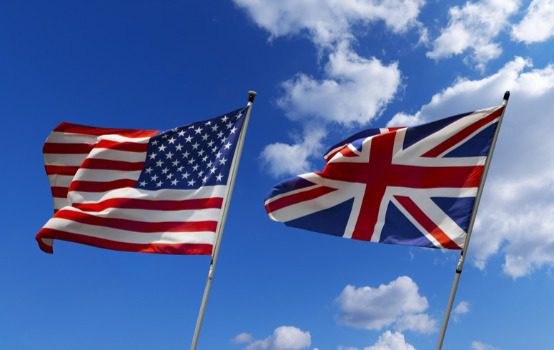LUKE NICASTRO

But over the ensuing decades, the reverse occurred. The “Special Relationship” was taken up enthusiastically by both parties, it is true; but where London often struggled to secure the support of its ostensible pupil (as during the Suez Crisis or the Falklands War), successive U.S. administrations had far less trouble enlisting British participation in their own geopolitical adventures (most notoriously, the 2003 invasion of Iraq).
Along the way, British strategic culture changed as well. Nowhere is this more clearly observed than in the United Kingdom’s periodic defense reviews, the latest of which was released in March. In two documents—a whole-of-government Integrated Review and a military-focused Defence Command Paper—Prime Minister Boris Johnson’s government has put forward a remarkably ambitious blueprint, committing the U.K. to a leading global role in everything from fighting climate change to reforming the global health system. What has attracted the most attention, however, are the initiatives concerning defense: a “tilt” to the Indo-Pacific, an increase in Britain’s nuclear arsenal, and the biggest program of military investment since the Cold War. Underpinning it all is a heady confidence in the country’s future. “Few nations,” writes Johnson in the foreword to the Integrated Review, “are better poised to navigate the challenges ahead.”
From their all-of-the-above approach to setting priorities and lack of concern for material limitations, it would seem British planners have again taken their cues from the United States. This would be a strain for any medium-sized country, but the U.K.’s present situation makes the proposition particularly dicey. Economically, coronavirus battered Britain more than any other major country, shrinking GDP by almost 10 percent in 2020. The nation also remains politically fissile, with growing calls for another independence vote in Scotland even as Brexit pains make the prospect of Irish unification increasingly plausible. Despite these constraints, the architects of Britain’s strategy have opted for grandiosity.
Consider one of the lynchpins of the review, the Indo-Pacific tilt. With phrasing that recalls the Obama Administration’s pivot to Asia, the initiative seeks to make Britain “the European partner with the broadest and most integrated presence in the Indo-Pacific.” This is to be accomplished through a variety of means: an increased military and diplomatic footprint (to include the deployment of a carrier strike group), the pursuit of trade deals, and engagement with regional bodies like ASEAN.
Unlike the United States, however, the British have far less weight to throw around; they simply lack the wealth, power, or geographical position to play the role of a Pacific power. Pretending otherwise amounts to a kind of national vanity project; it may yield a few photo opportunities and generate goodwill in Washington, but it is unlikely to advance British interests in a meaningful way.
Then there is the question of nuclear weapons. Anti-nuclear sentiment has traditionally been stronger in the U.K. than in the U.S., which partly explains why previous policy had aimed to reduce the stockpile of warheads to no more than 180 by the mid 2020s. The other factor is cost—nukes are expensive, and the benefits for a country as cash-strapped as Britain have been hotly contested. This latest review bucks both concerns, raising the maximum number of weapons to 260 and committing to the development of a new warhead. The government has been reluctant to offer a detailed explanation for the rise, and the review itself cites only “a developing range of technological and doctrinal threats.” As with advocates of ‘nuclear modernization’ on the other side of the Atlantic, the goal often seems to be to place the issue beyond public debate, invoking vague national security reasons to justify expanding the arsenal (contravening precedent and possibly international law).
The Defence Command Paper also outlines a revolutionary change in the purpose of Britain’s military, which will transition “from a force that is primarily designed for the contingency of a major conflict and warfighting to one that is also designed for permanent and persistent global engagement.” It will, in other words, come to resemble America’s armed forces, which are frequently deployed in open-ended commitments all over the world.
All this will require considerable resources, and London has said it will need to increase its defense budget by 14 percent over the next four years. But even if money were no object, U.S. strategy offers a dubious example for imitation. Over the past three decades, America squandered one of the most favorable geopolitical positions in history, launching fruitless interventions at the cost of thousands of lives, doubling down on destabilizing antagonisms with second-rate powers, and failing to adequately prepare for the rise of its only peer competitor.
Given this record, it would be wiser to consider alternative models. And when the review ventured outside the conventional defense sphere, it did offer some genuinely insightful proposals: turning Britain into a science and technology superpower (with a particular emphasis on space and cyber) for instance, or sketching a plan to promote national resilience. If these had been allowed to take center-stage, they might have anchored an innovative post-Brexit pivot, positioning the country well to assume the soft power mantle to which it has long aspired.
But as it is, the ambitions of “Global Britain” have delivered a bargain-basement version of American grand strategy, one which may end up saddling it with many of the same costs—and far less ability to pay.
Luke Nicastro is a fellow with Defense Priorities and a defense analyst based in Washington, D.C.
No comments:
Post a Comment